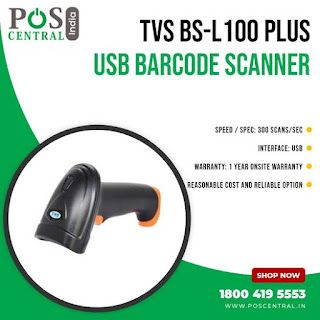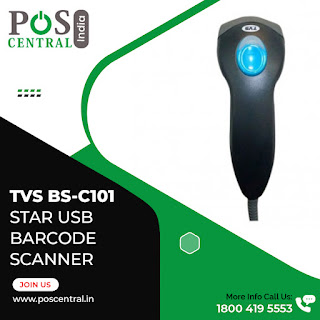1D Barcode Scanners: Everything You Need to Know
In today's fast-paced world, businesses require efficient and accurate tools to manage their inventory and track sales. Barcode scanners have become an essential component of modern retail, warehouse, and logistics operations. One of the most popular types of barcode scanners is the 1D barcode scanner. In this article, we will discuss what 1D barcode scanners are, how they work, their advantages and disadvantages, and the different types available in the market.
What are 1D Barcode Scanners?
A 1D barcode scanner is a handheld device that can read one-dimensional barcodes. One-dimensional barcodes, also known as linear barcodes, consist of a series of vertical bars and spaces of varying widths that represent alphanumeric characters. These barcodes are commonly found on products in retail stores, warehouses, and libraries, and they provide information such as the product's name, price, and stock levels.
2. How do 1D Barcode Scanners work?
1D barcode scanners use a laser or LED light to scan the barcode and convert the data into a digital signal that is transmitted to a computer or other device. The scanner works by emitting a beam of light that bounces off the barcode and into a photosensor, which then translates the pattern of light and dark spaces into a series of numbers and letters that can be read by a computer.
Types of 1D Barcode Scanners
There are several types of 1D barcode scanners available, including:
- Handheld scanners: These are the most common type of 1D barcode scanners and are held by the user to scan barcodes.
- Cordless scanners: These scanners operate wirelessly using Bluetooth or Wi-Fi and are useful for scanning barcodes in areas where a wired connection is not practical.
- Presentation scanners: These scanners are designed for use in retail environments where products are presented to the scanner rather than the scanner being moved over the barcode.
- Fixed-mount scanners: These scanners are permanently mounted in one location, such as a warehouse conveyor belt or a retail checkout counter.
Advantages of 1D Barcode Scanners:
- Easy to use: 1D barcode scanners are simple to operate and require minimal training.
- Cost-effective: 1D barcode scanners are typically less expensive than 2D barcode scanners, making them a popular choice for small businesses.
- Fast and accurate: 1D barcode scanners can quickly and accurately read barcodes, making them ideal for high-volume operations.
- Compatibility: 1D barcodes are widely used and compatible with many different types of software and hardware.
How to Choose the Right 1D Barcode Scanner for Your Business
When choosing a 1D barcode scanner for your business, there are several factors to consider, including:
- Scanning distance: Depending on the size of your warehouse or store, you may need a scanner with a longer scanning distance.
- Durability: If your scanner will be used in a harsh environment, such as a warehouse, you will want a device that can withstand bumps, drops, and extreme temperatures.
- Connection type: Depending on the setup of your store or warehouse, you may need a scanner that can connect wirelessly or via a wired connection.
- Budget: 1D barcode scanners vary in price, and you will want to choose a device that fits within your budget.
How to Use 1D Barcode Scanners
Using a 1D barcode scanner is straightforward. The user simply points the scanner at the barcode and pulls the trigger or presses the button to activate the scanning process. The scanner emits a beam of light that reads the barcode and sends the data to a computer or other device. Some scanners may require additional setup or configuration before use.Applications of 1D Barcode Scanners:
1D barcode scanners are used in a wide range of industries, including:
- Retail: Barcode scanners are commonly used in retail environments to scan product barcodes at the point of sale and manage inventory.
- Warehousing and logistics: Barcode scanners are used to manage inventory, track shipments, and improve supply chain efficiency.
- Healthcare: Barcode scanners are used to track medical supplies, manage patient records, and ensure accurate medication administration.
- Libraries: Barcode scanners are used to manage book inventory and check out books to patrons.
Popular Brands of 1D Barcode Scanners
Some popular brands of 1D barcode scanners include:
- Honeywell
- ZebraHoneywell
- Rugtek
- TVS
How to Maintain 1D Barcode Scanners
To ensure that your 1D barcode scanner continues to operate at peak performance, it is important to perform regular maintenance. This includes:
- Cleaning the scanner regularly to remove dirt and debris that can interfere with scanning accuracy.
- Inspecting the scanner for damage and replacing any worn or damaged components.
- Updating the scanner's firmware and software to ensure compatibility with other devices and systems.
FAQs
How accurate are 1D barcode scanners?
1D barcode scanners are highly accurate and can quickly and easily read barcodes.
Can 1D barcode scanners read QR codes?
No, 1D barcode scanners can only read linear barcodes.
How much do 1D barcode scanners cost?
The cost of a 1D barcode scanner varies depending on the brand, features, and scanning distance, but they are typically less expensive than 2D barcode scanners.
Are 1D barcode scanners easy to use?
Yes, 1D barcode scanners are simple to use and require minimal training.
Can 1D barcode scanners be used in harsh environments?
Yes, some 1D barcode scanners are designed to be durable and can withstand bumps, drops, and extreme temperatures.
Conclusion
1D barcode scanners are an essential tool for many businesses and industries, from retail to healthcare to logistics. These scanners are highly accurate, fast, and easy to use, making them an efficient and cost-effective solution for managing inventory, tracking shipments, and improving supply chain efficiency. When choosing a 1D barcode scanner, it is important to consider factors such as scanning distance, durability, connection type, and budget. By following proper maintenance procedures, businesses can ensure that their barcode scanners continue to perform at peak levels for years to come.
Also go through












.png)
0 comments:
Post a Comment